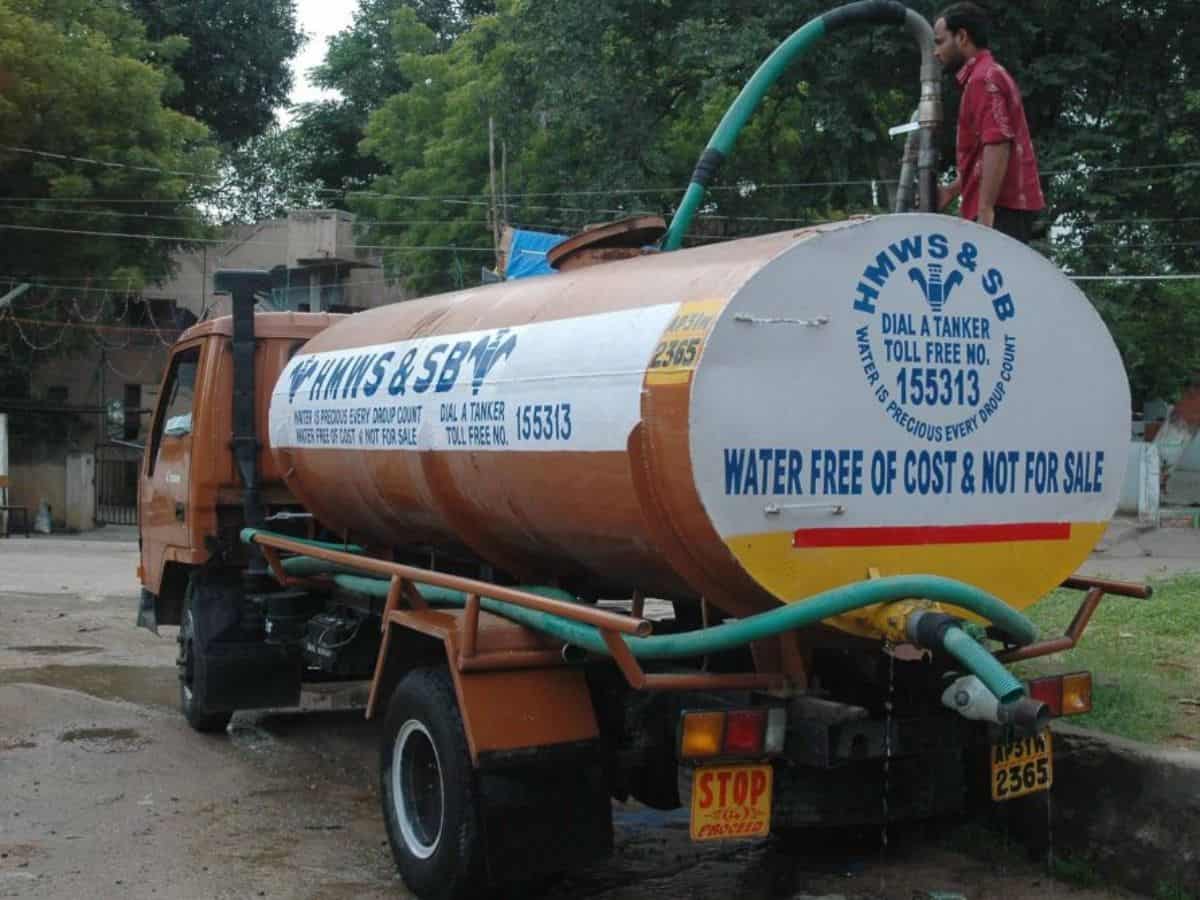
Hyderabad: Water tanker bookings across Hyderabad have increased by 36 percent since last year due to delayed monsoons for three consecutive years, a data report was released by the Hyderabad Metropolitan Water Supply and Sewerage Board (HMWSSB) on Tuesday, July 15.
Groundwater levels have significantly reduced across many areas in Hyderabad. This is likely to increase further, says the data.
According to the water board, water tanker bookings increased from 63,724 between July 1 and July 14 in 2024 to 86,520 during the same period in 2025.
HMWSSB revealed a highly disproportionate pattern of water tanker usage, where out of the 14 lakh connections, only 42,000 households are booking tankers. Among them, just 500 residents have booked 31,000 tankers in a span of 75 days during summer.
The data also reveals that 22,000 households booked 90 percent of the water tankers which amounts to 2.84 lakh tankers across the city.
LB Nagar saw a massive 272 percent increase in water bookings, rising from 276 last year to 1027 this year. Riyasath Nagar recorded the second highest with bookings increasing from 7 to 25 bookings (257 percent) followed by Charminar, where bookings went up from 12 to 26, marking a 117 percent increase.
The highest demand for water tanker bookings is reported from SR Nagar, Dugarcheruvu, Kukatpally, Manikonda, Nizampet and Sahebnagar divisions.
Meerpet and Kompally areas did not register any water bookings.
The report revealed that this high demand is because many households lack rainwater harvesting pits.
HMWSSB has begun issuing notices to these households as part of a 90-day awareness program promoting the construction of rainwater harvesting pits. So far, 16,000 households have been served the notices.
Managing director Ashok Reddy has instructed officials to prioritise timely delivery of booked tankers and intensify awareness campaigns on rainwater harvesting pits.
The Telangana government have repeatedly appealed to residents to construct rainwater harvesting pits on every residential premises above 300 yards within the ORR limits. Residents would have to shell out extra money on water tankers if these wells are not constructed.


